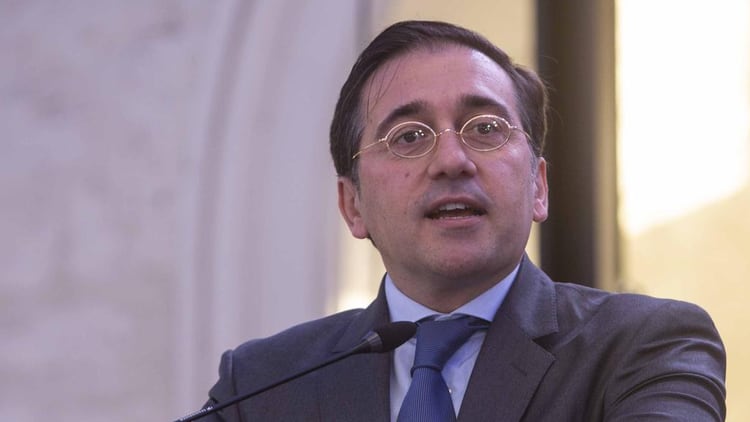The Diplomat
The acting Minister of Foreign Affairs, José Manuel Albares, considers the roadmap agreed with Morocco a success, but does not specify when the announced opening of customs in Ceuta and Melilla will take place.
In statements to Europa Press, Albares valued what he considered to be “good results” of the relationship established with Morocco, after the Government, through its President, Pedro Sánchez, described Morocco’s proposal for autonomy for Western Sahara in March 2022 as “the most serious, realistic and credible” proposal to resolve the dispute, in what represented a change in Spain’s traditional position on its former North African territory.
The roadmap agreed on 7 April last year had as one of its main points the reopening of the Melilla customs office, unilaterally closed by Morocco in August 2018, and the opening of a new one in Ceuta. However, so far, there have only been three trial operations between February and May.
When the minister is asked about the timing of the opening of these customs offices, he limits himself to pointing out that “a roadmap is a process, a long-term commitment between the two countries”, but without specifying any kind of timetable.
Nor did Albares clarify in his statements whether the early elections and the interim situation that exists at the moment until a new government is formed in Spain have altered the planned timetable and whether new trade shipments can be expected in the near future.
The minister assures that there has been a decrease in the number of immigrants arriving by the route from Morocco, compared to Italy or Greece, and affirms that “the trade figures that continue to grow exponentially month by month” or “the extraordinary cooperation in the fight against terrorism”. “The EU’s roadmap has been a success and will continue to be successful”.
Asked about the increase in the number of arrivals of small boats in the Canary Islands in recent weeks, although he admits that he does not know the latest updated data, the minister says that “it has nothing to do with Morocco but with an instability that is found more widely in the Sahel strip and therefore comes from those coasts”.
Albares stresses that “absolute sealing, the arrival of zero irregular immigrants is not something possible” but says that, if one compares the 305% increase in arrivals in the case of Italy and 95% in the case of Greece, “one sees that Spain has very good partners and very good partnerships with West Africa as well”.
As for the incipient instability in Senegal, the country of origin of a good number of the small boats arriving in the Canary Islands or being intercepted in recent weeks, the minister admits that this country is “a strategic partner for Spain” located in “a complicated area” such as the Sahel and the Gulf of Guinea. Therefore,” he emphasises, “what we have to do is support Senegal so that it maintains that stability and that democracy”.
With regard to Algeria, whose foreign minister said a few days ago that relations are still “at a standstill”, Albares avoids clarifying whether there is any kind of contact to overcome the crisis and maintains that “Spain wants to have a relationship with Algeria just like with the rest of its neighbours and with the rest of the countries of the Arab world, based on friendship”.
Gibraltar
On the other hand, the Foreign Minister justifies the note verbale of protest sent to the United Kingdom over several incidents of harassment of Spanish vessels in the waters surrounding Gibraltar, which Spain considers to be under its sovereignty.
Albares considers that these incidents “are outside the constructive spirit” in which, he says, negotiations have been taking place between the United Kingdom and the European Commission on the future of the British colony after Brexit, and with “the proposal that Spain has already put on the table several months ago”.
However, the minister is confident that the agreement can be concluded “as soon as possible” and that once and for all it will be possible to “build an area of shared prosperity” between Gibraltar and the Campo de Gibraltar.
However, Albares does not want to assess whether these events are electioneering, as elections are due to be held on the Rock before the end of the year. “I don’t speculate on the matter”, he replies.
With regard to the negotiations between the EU and the United Kingdom, which have been dragging on for two years and have been paralysed by the early elections in Spain, Albares is convinced that “as soon as the investiture process is resolved” they will be resumed with the same “constructive spirit on both sides” as until now, although he does not predict whether a solution is feasible before the end of the year.







